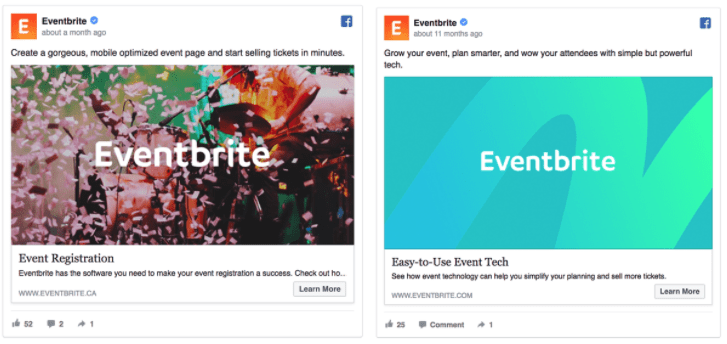Informative
Informative
Why Everyone Running An E-Commerce Business Needs Social Ads
July 3, 2018
Informative
July 3, 2018
So you’ve got your own e-commerce business. It could be a seasoned site you’ve been building out for a while, or you could be tipping your toe in for the first time. No matter what stage your business is at, you’re going to want it to grow. How? The secret lies in social ads. From Facebook and Twitter to Instagram and Pinterest, there’s a ream of opportunities out there for you to advertise your store. With social media’s popularity only set to soar ever higher, it’s up to you to capitalise on that and expand your business. Here’s why.
With a lot of social ad tools, users get the ability to thoroughly test their adverts. Chopping and changing the ad a little each time, whether it’s a colour change or a sentence tweak, means marketers can see for themselves what works best. And for your e-commerce business, it means getting the most from your social media strategy.
The process of split testing lets you create two separate adverts, with a significantly different component. This can be anything from the visual content or the format (e.g. video, text post) to the tone of voice. It can even be something as simple as changing an image, as in the below example:

The first ad uses a colourful and eye-catching stock photo, while the second features a more simplistic and subdued graphic. Even a simple image change can yield different results for a brand.
Audience reactions to these ads are tested against a variety of metrics, allowing you to choose the most successful one for your campaign.
Split testing lets you work out what kind of thing works best for your brand. Perhaps striking a certain tone of voice really appeals to your audience? Or maybe your customers respond better to video content than a text post?
If you find out that they do respond better to a video, you can then conduct further testing by tweaking the video format, length, captions etc.
Split testing lets you perfect your marketing strategy, building your online store’s digital presence with ease. Use a tool like The Next Ad to help you split test your product ads at scale and build on your creative skills.
When you’re marketing your e-commerce store, you’re going to want to make sure you’re targeting the right people. For example, a single young professional might not be interested in your handmade baby clothes. With social advertising, you can aim your posts at specific audiences based on existing customer data.
Facebook’s Custom Audience function allows you to upload your customer’s phone numbers, e-mail addresses or Facebook user details to their ad system. Using this data, Facebook then matches your customer data with the information they already have on them. (This data includes factors such as location, interests, gender, age, etc).
Armed with this information, you can choose to have your adverts targeted at individuals who already match your existing customer profile. It’s as easy as that to find your next army of brand advocates via social ads.
Using Custom Audiences means more efficient marketing for your business, and more bang for your buck. If you paid for an ad on a billboard, that would be seen by everyone that walks past. And that’s fine, but not all of those people are possible prospects. Social media ads let you go straight to potential customers, making for a better use of your time and money.
Social ads have a lot of advantages over their traditional print cousins, the most useful being their variety.
Scroll through your social media feed and you will see text ads, videos, polls, images — the possibilities are virtually endless.
For example, both Facebook and Instagram offer an ad carousel for visual content, as seen below in an ad from Travelstart:

Let your customers discover you through specifically curated images of your product in a dynamic ad for your e-commerce brand. So much more compelling than a grayscale ad!
A lot of brands are beginning to embrace the Instagram Stories feature — using Stories brings a nice ephemeral touch to your social advertising strategy, and ensures your content strategy stays fresh.
Why not create a Story ad of your own, like the one from Pacific Northwest Wonderland below:

Sticking to the Story format keeps the platform experience fluid for users, and makes your ad indistinguishable from other native Stories.
This native format lets you actively engage with your customers, and its short length means you need to get creative to reel them in.
The key here is creativity. With such a wide variety of options available to you, you should utilise each one differently according to your product.
For example, if you’re selling handmade elastic band guns, a short video of them in action would really grab a potential customer’s attention. Or, if you’ve got a seasonal collection of fashion items, use the carousel to display each item individually.
Align your ad creative with your product and target audience, and you will reap the rewards.
If you haven’t heard of retargeting yet, you’re going to want to pay attention.
Retargeting is, in a nutshell, the pushing of social ads to users who have already interacted with your website or ads. Traditional retargeting works by first installing a line of code (Facebook Pixel) to your online store. If a customer then later navigates away without making a purchase, ads for your site will appear on their Facebook feed.
This is where automation can step in and help you scale this strategy for your e-commerce business. Social-ad favourite Shopify gives you the option of automatically going after customers who abandoned their cart at the checkout by showing them ads and sending them emails with personalised voucher codes. Install clever AI-driven apps to help you automatically funnel customers back to your store through the power of video, personalisation, and storytelling.
Look at the compelling ad example from Expedia.ca below that taps into a sense of urgency:

Retargeting is a useful tool which, when utilised correctly, can pay dividends for your e-commerce business. It’s the perfect way to nudge people along the sales funnel.
Retargeting is the online equivalent of grabbing your customer before they leave your store and asking them if you can help with anything. Sometimes people can’t make up their mind about making a purchase, and retargeting is your way of making it up for them. This makes it a must-have for any budding e-commerce social strategy.
With so many people all around the world using social media, you’d be foolish not to capitalise on it for your e-commerce store. The ad and creative variety open to you is virtually endless. On social media, you have the option of reaching out to the people who are 99% of the way there — and now you just need to give them that final nudge. From retargeting to split testing, there’s a world of opportunity open to your e-commerce business if you’re willing to put in the time and effort on social media.